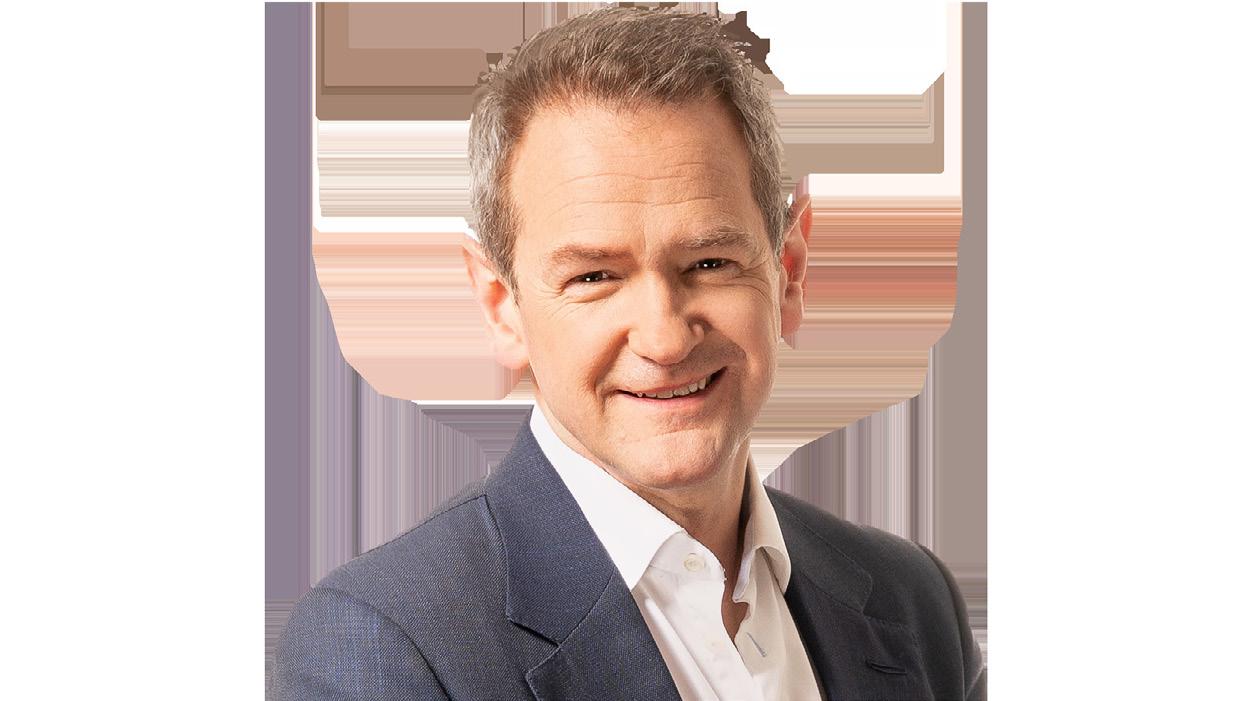ELECTRIFYING



Caird Hall, Dundee
Thu 9 Mar 2023 7.30pm




















































































































































































































































































































































Enter a world of moody, memorable and, at times, heart-breaking melodies as conductor John Wilson and the RSNO explore Rachmaninov’s final piece, his Symphonic Dances. Before that, the Orchestra’s Principal Clarinet, Timothy Orpen, performs Copland’s beguiling Clarinet Concerto, Gershwin throws a party Cuban-style and the young players of Big Noise Douglas start proceedings with two pieces by Joëlle Broad.
JOËLLE BROAD Amitiés [4’]
Side-by-side with Big Noise Douglas
JOËLLE BROAD Mars [4’]
Side-by-side with Big Noise Douglas
GERSHWIN Cuban Overture [10’]
COPLAND Clarinet Concerto [16’]
INTERVAL
RACHMANINOV Symphonic Dances Op45 [35’]
John Wilson Conductor
Timothy Orpen Clarinet
Big Noise Douglas
Royal Scottish National Orchestra
CAIRD HALL, DUNDEE
Thu 9 Mar 2023 7.30pm
If viewing these notes at the concert, please do so considerately and not during performances. Please silence all mobile telephones and alerts, and refrain from taking photographs, without flash, until the end of each piece.
This concert is supported by the Northwood Charitable Trust, R J Larg Family Trust, Tay Charitable Trust and Dundee Leisure & Culture Major Music Award.


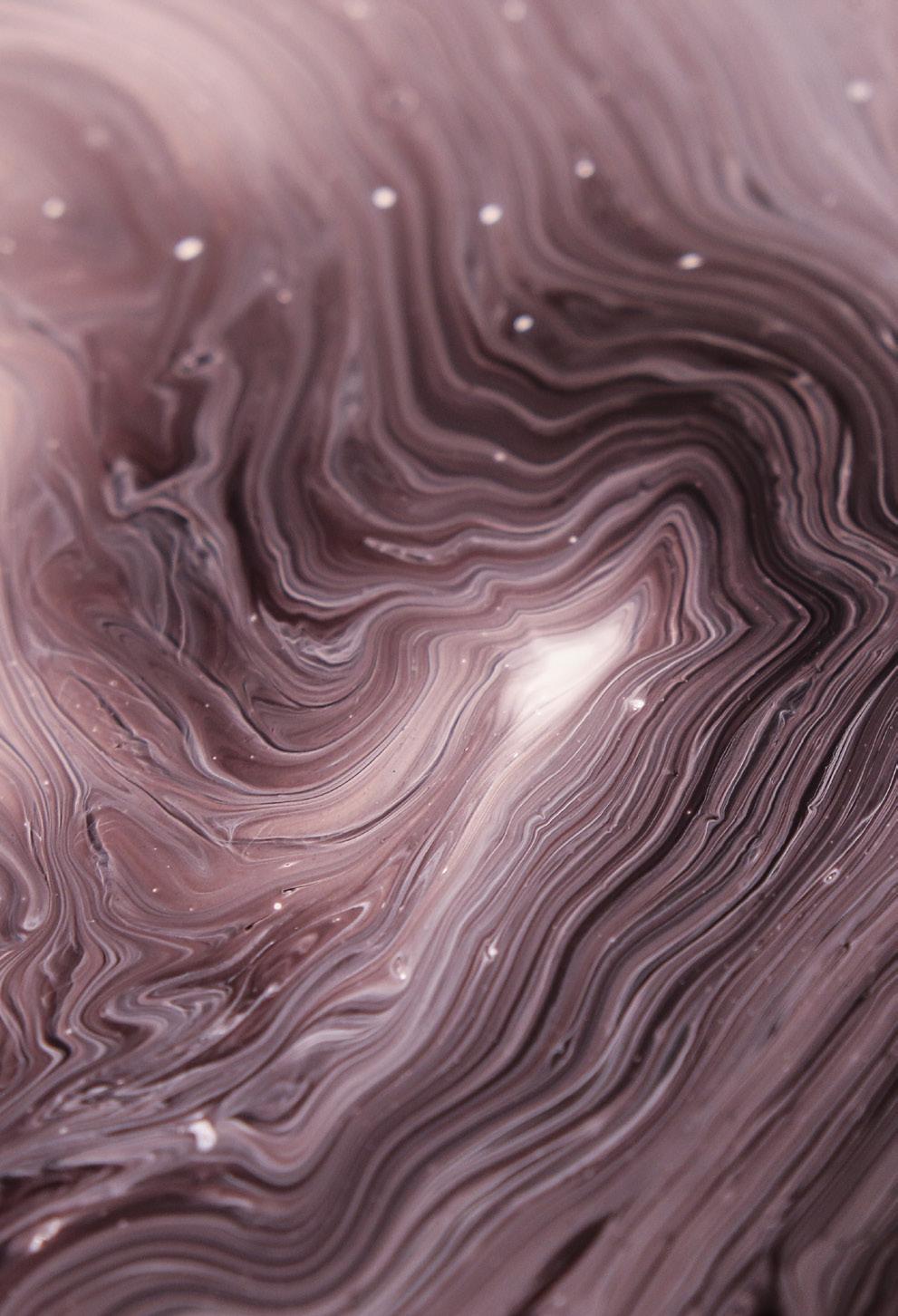
THU 1 JUN 2023
rsno.org.uk

Mozart Symphony No40 K550
Jörg Widmann Armonica
Mozart Adagio for Glass Harmonica in C major K356
Mozart Symphony No41 Jupiter K551
Jörg Widmann Conductor
Christa Schönfeldinger Glass Harmonica
The RSNO is supported by the Scottish GovernmentWelcome to this evening’s concert.
You will notice that we have some fresh faces joining the Orchestra for the first two pieces in tonight’s programme. These talented young musicians from Big Noise Douglas join us for the latest of our side-by-side performances in partnership with Sistema Scotland. It is a joy to share the stage with these budding performers and to enable them to share their skills with their friends, family and our audience. The opportunity to play alongside world-class musicians, soloists and conductors is so important to the experience of being a music student and I know our musicians love the chance to get involved in the future of their craft.
Tonight’s concert features an Americainspired programme and I’m delighted that it is conducted by John Wilson. As a trumpet player, I performed with John in charge of the baton; his ability to draw out such warmth from the strings is well suited to the music of
Rachmaninov and the bluesy feel of Gershwin. I’m looking forward to hearing these great pieces again from the opposite side of the podium!
Our soloist this evening is someone you are likely already familiar with – RSNO Principal Clarinet, Timothy Orpen. Tim joined the RSNO in September 2020 and we are excited to hear what he brings to Copland’s Clarinet Concerto. The RSNO is fortunate to have such talented musicians and it’s always a delight to see them take centre stage.
Thank you for your continued support of the RSNO in Dundee. I look forward to seeing you all again in June when we return for Mozart’s Jupiter Symphony alongside his intriguing piece for the lesser-known glass harmonica. When else will you get the chance to hear such a fascinating instrument?
Alistair Mackie CHIEF EXECUTIVE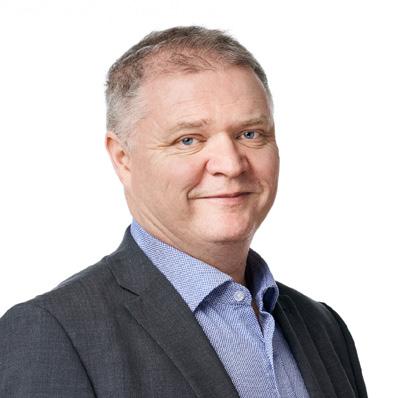





































































DURATION 4 minutes
Amitiés was written for the Benedetti Foundation in 2021, originally for online teaching. In a period when we were learning how to teach and make musical connections online, we had to find or make material that would work and where we could feel part of a bigger ensemble from our own rooms. The more advanced parts were recorded so that young players could play along within a rich
sound. Amitiés means ‘friendship’ and the piece is about some of the different feelings we experience with our friends. As part of the learning process, we discuss what we individually hear in the music and how we show that in our playing. Following its use in an online project, Amitiés was developed into its current form and has been used throughout the UK since 2022 by the Benedetti Foundation.
DURATION 4 minutes
Mission Mars was written in the very first year of Big Noise Raploch for a concert with the BBC Scottish Symphony Orchestra string players. It was written for children near the start of their learning and without the need to use music. The musical material is based on the highest and lowest strings on the four different instruments of the string section. By focusing
on playing open strings, young players are able to develop their bowing and sound production in an ensemble. For this performance, Joëlle has added extra wind and percussion parts and this is the first time it has been played in this way. The piece finishes with a countdown from 10 before we ‘blast off’!
Joëlle Broad is a musician, teacher, composer, mentor and workshop leader. She learned violin through the peripatetic music service on the Wirral. Participating in a rich experience of youth ensembles and orchestras led to her pursuing music as her career.
Joëlle studied at the Royal Scottish Academy of Music and Drama (now the Royal Conservatoire of Scotland) and has worked with many Scottish arts organisations, including the Scottish Chamber Orchestra and Drake Music Scotland. She was one of the original team members at Big Noise Raploch in Stirling, the first Big Noise programme which began work in 2008, and currently works as
Abbie Ramsay VIOLA
Aiden Harlow VIOLA
Amber Pryde CELLO
Amelia Bain CELLO
Ava Campbell CELLO
Brodie Shearer VIOLIN
Caitlyn Smith VIOLIN
Catherine Letford VIOLIN
Ella Callaghan CELLO
Emily Jo Glancey VIOLA
Grace Young VIOLIN
curriculum leader (strings) across Sistema Scotland’s Big Noise programmes. She is a tutor and mentor for the Benedetti Foundation and was commissioned to compose six pieces for beginner orchestras for the Foundation’s 2023 programme.

Joëlle writes music that has musical development at its heart and is committed to creating pieces that are musically interesting at the early stages of playing. She also teaches violin for the Royal Conservatoire of Scotland’s Junior Department in the primary instrumental programme and runs a violin project at her local school, Dunning Primary.
Jack Rodger CELLO
James Mackie CELLO
Jayden Forster DOUBLE BASS
Jessie McConnell CELLO
Lailah Robb VIOLA
Laura Bednarska VIOLIN
Lilly Henderson VIOLIN
Logan Valentine VIOLIN
Nathan Reilly VIOLIN
Ope Gbenle CELLO
Paige Rihoy CELLO
Piotr Lendla CELLO
Ruari McGregor DOUBLE BASS
Samuel Fisher CELLO
Sophie Small CELLO
Summer Matthew VIOLIN
Tyler Thompson DOUBLE BASS
Zoe Collier VIOLIN
In February 1932, shortly after the premiere of his Second Rhapsody, George Gershwin set off on holiday to Cuba with a number of friends – ‘two hysterical weeks … where no sleep was had’, as he put it. Frequenting the beaches, bars and clubs of Havana, he became fascinated by Cuban musical rhythms and sounds, and when a 16-piece rumba band serenaded him at 4am outside his hotel room, as his friend Bennett Cerf told it, ‘he promised to write a rumba of his own’.
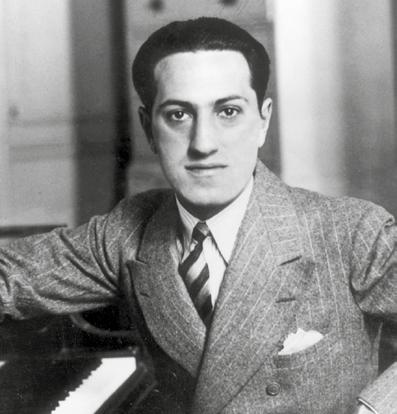
New York, 16 August 1932
DURATION 10 minutes
Certainly the sounds of Cuba had taken hold, and in the same way that Gershwin had brought a set of car-horns back from Paris in 1924 which he subsequently used in his symphonic poem An American in Paris, he duly brought back a selection of Cuban instruments from Havana, then unfamiliar to many Americans, including the guiro (gourd), bongo, claves and maracas. The tunes of Havana came too, and when he set pen to paper some five months later, the popular strains of Ignacio Piñeiro’s Échale Salsita, which was playing endlessly in the bars of Havana in February, found an echo in the main melody of Gershwin’s new symphonic poem.
A three-part work of considerable orchestral sophistication, Rumba, as it was first called, was a leap on from the Second Rhapsody. Gershwin, a brilliant pianist and inspired composer and songwriter whose work married diverse influences from the Yiddish musical theatre tradition, the African American jazz of Harlem and classical music, had been working on his orchestral technique with the aim of developing a modern and inclusive American classical music since his first proper essays in orchestration with the Piano Concerto in F (1925).
He took tuition when he could – although Ravel and Boulanger had turned him down some years previously in Paris, afraid that too much technique would stymy his natural genius – and a prolonged period of study from 1932 under theorist Joseph Schillinger proved fruitful. Schillinger was a ferocious technician, and Gershwin duly knuckled down to study (as in everything, he was not a man to do things by halves), his increasingly complex harmonic understanding showing formidably in both Rumba and his subsequent opera Porgy and Bess
Rumba, with its suite of Cuban instruments placed, as per Gershwin’s handwritten instructions, ‘right in front of the conductor’, had its highly successful premiere in August 1832 at the Lewisohn Stadium in New York under Albert Coates in front of nearly 18,000 people – with thousands more turned back at the door, Gershwin recalled. It was the first time the New York Philharmonic had devoted an evening’s programming to a single living composer, and was, said Gershwin, ‘the most exciting night I have ever had’.
Three months later, he renamed the work Cuban Overture, to more properly reflect its ‘serious’ compositional nature, in the face of critics who struggled to see the dazzling Broadway songwriter in a classical vein, and conducted it at a benefit concert at the Metropolitan Opera.
© Sarah Urwin Jones
5 Jan Umberto Eco, Italian philosopher and author of The Name of the Rose and Foucault’s Pendulum, was born
14 Mar George Eastman, the founder of photography company Kodak, committed suicide in Rochester, New York
19 Mar The Sydney Harbour Bridge, until 2012 the world’s longest wide-span bridge, opened
6 May Russian émigré Paul Gorguloff shot French President Paul Doumer in Paris; Doumer died the next day
10 May James Chadwick discovered the neutron, for which he would be awarded the Nobel Prize for Physics in 1935
20-21 May Amelia Earhart became the first woman to fly solo nonstop across the Atlantic Ocean, taking 14 hours and 56 minutes
8 Jul The US Dow Jones Industrial Average reached its lowest level (41.22) of the Great Depression
18-19 Aug Scottish aviator Jim Mollison became the first person to make a solo east-west transatlantic flight
8 Nov Democrat Franklin D Roosevelt defeated the Republican incumbent Herbert Hoover to become the 32nd US President
25 Dec King George V delivered the first Royal Christmas Message, on the BBC Empire Service from Sandringham
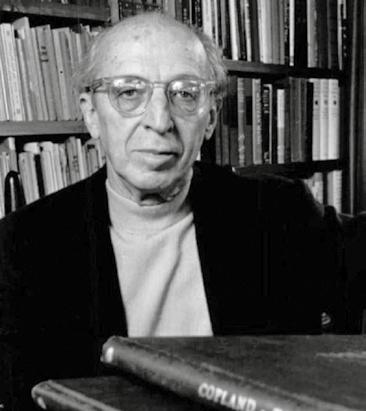
When American jazz clarinettist Benny Goodman commissioned Aaron Copland to write a clarinet concerto for him in 1947, the string of hits already under Copland’s belt included Fanfare for the Common Man (1942), Rodeo (1942) and Appalachian Spring (1944). In other words, a Copland concerto premiere wouldn’t just be prestige-laden, but would also carry serious crowd-pulling potential, such was the degree to which his accessible, tonal, distinctly American language – wide, open chords, high melodicism, often drawing on the New World’s folk traditions – struck a chord with American audiences.
NBC radio broadcast: Benny Goodman, NBC Symphony Orchestra, conductor Fritz Reiner, 6 November 1950
DURATION 16 minutes
1. Slowly and expressively–
2. Rather fast
No wonder Goodman not only paid big bucks for it – two thousand dollars – but also gave Copland compositional carte blanche. Copland for his part was equally pleased with the arrangement, because beyond already being an admirer of Goodman’s playing, he was also intrigued by the possibility of using Goodman’s jazz roots to inject his own musical language with, as he put it, ‘a new point of view ’. Perhaps the most beguiling quality of the resultant work is the way in which, for much of it, it subtly treads the line between jazz and classical, hinting at the former while remaining committed to the latter.
Scoring-wise, when it comes to giving the clarinet room to shine, Copland has cleared the floor, dispensing with orchestral woodwind, brass and percussion in favour of simply strings, harp and piano – from which he conjures a panoply of different textures and timbres as strings are bowed, plucked and struck.
Architecturally, the Concerto has two movements rather than the standard concerto three, which roll from the first to the second without a break, divided by a solo cadenza. The first movement is a lilting, slow waltz – perhaps one of the most lyrical pieces of
music Copland ever wrote – whose melodic line softly, languorously dips and soars over wide intervallic leaps. Based on a previous pas de deux idea he’d never developed, the whole feels reminiscent of Appalachian Spring’s most serene, romantically glowing sections, while also carrying the faint ghost of Mahler.
Eventually the solo cadenza emerges from a dreamily shimmering, time-standing-still orchestral chord; and while the clarinet’s initial launch point is the main theme, expressed in the same lyrical vein, the music soon speeds up into faster, syncopated writing – with a corresponding uplift in virtuosity and jazz feel – neatly setting things up for the ‘Rather fast’ second movement. Couched in rondo form (i.e. with its main theme making repeated returns), this opens light and treble-pitched, its jauntily angular main theme articulated by the violins to an equally jaunty piano- and harp-dominated ticking accompaniment. Next to enter are the lower strings. The clarinet enters over the top of this feast of lucidtextured contrapuntal complexity with its own extremely staccato restatement of the theme. From here, we move through a syncopated jazz theme, Charleston rhythms, and a Brazilian theme that Copland had picked up that same year in Rio de Janeiro, suavely, raunchily rendered by the clarinet to slapping basses. The Concerto moves to its climax by way of an energetic coda section in C major, and by now there’s no mistaking the jazz element, from the piano and clarinet’s tossings of a jazzy fragment between each other, to the clarinet’s final word – a joyous jazz smear (glissando) that hearkens back, at least in classical audiences’ memories, to the opening of George Gershwin’s jazz-meets-classical masterpiece of 1924, Rhapsody in Blue
© Charlotte Gardner21 Jan George Orwell, the author of Animal Farm and Nineteen Eighty-Four, died
8 Feb The Stasi was founded in East Germany, acting as a secret police force until 1990
1 Mar German theoretical physicist Klaus Fuchs was convicted in London of passing top-secret UK and US atomic bomb data to the Soviet Union
27 Apr The Group Areas Act was passed in South Africa, formally segregating the races
27 Apr Britain formally recognised Israel
9 May Robert Schuman presented his proposal for a pan-European organisation to maintain peaceful relations, the beginning of what is now the European Union
13 May The first race in the inaugural Formula One World Championship was held at Silverstone
29 May The Archers, the world’s longestrunning radio soap opera, was first broadcast on the BBC Light Programme
25 Jun North Korean People’s Army tanks crossed the 38th parallel into South Korea, starting the Korean War
15 Aug Anne, The Princess Royal, was born
23 Oct Al Jolson, star of The Jazz Singer, the first feature-length film with sound, died

Fate dealt a cruel hand when it pushed into exile a man so filled with love for his country as Sergei Rachmaninov. The composer fled Russia at the Revolution of 1917. ‘His homesickness assumed the character of a disease as the years passed’, wrote the biographer David Ewen, ‘and one symptom of that disease was an unshakeable melancholy.’
Another was the composer ’s obsession with death. This we can hear in Rachmaninov ’s music – most obviously in his constant musical recourse to the theme known as the Dies Irae, an ancient plainsong tune associated with the scriptural text invoking the ‘day of wrath that will dissolve the world in ashes’
Philadelphia, 3 January 1941
DURATION 35 minutes
1. Non Allegro
2. Andante con moto (tempo di valse)
3. Lento assai
The Dies Irae theme, which carries its own ominous atmosphere, weaves its way through even ostensibly playful works by Rachmaninov. But it has special import in the composer ’s Symphonic Dances, a late score in which he appears to tot up the profit and loss account of his value as a composer of orchestral music.
In 1939 Rachmaninov settled in Long Island. In America, he was known more as a pianist than a composer. While practising for a recital tour in August 1940, Rachmaninov felt a piece forming under his fingers. He wrote to the conductor of The Philadelphia Orchestra, Eugene Ormandy: ‘Last week I finished a new symphonic piece, which I naturally want to give first to you and your orchestra. It’s called Fantastic Dances ’
Rachmaninov ’s biographer Victor Seroff tells that the composer conceived the work’s three movements as representing ‘midday, twilight and midnight’ – the three stages of human life. When the piece was first performed on 3 January 1941, its title had changed to Symphonic Dances
By then the ‘ time-of-day ’ titles had disappeared, but the presence of the dance was unmistakable. The dancer Michel Fokine was among the Russian expatriate community in Long Island and had agreed to choreograph the piece before his untimely death.
A further impetus is faith. ‘I thank thee, Lord,’ wrote Rachmaninov at the end of the score, just after quoting the Alleluia passage from his own Orthodox choral work, All-Night Vigil. This is surely not unrelated to an awareness of mortality apparent in his constant use of the Dies Irae theme.
Another vital impulse, perhaps even the reason Rachmaninov decided to take up his pen again, was the new music coming from the likes of Schoenberg and Stravinsky. Rachmaninov doesn’t borrow stylistic tools from either in his Symphonic Dances, but the sense of sentimentality found in much of his previous music has gone. Muscularity, directness and even austerity have taken its place.
The first dance demonstrates the point. After the gruff string chords that follow the ticking opening, we hear a despondent, three-note descending motif that becomes the germ of the whole score. Even the singing secondary theme, introduced by an alto saxophone, has ‘an uncharacteristic coolness’, in the words of one critic. Eventually, underneath glistening glockenspiel and flutes, Rachmaninov quotes a theme from his own First Symphony, a piece he had destroyed and hoped would never be heard again following its disastrous premiere in 1897 (he did not know that somebody had squirrelled away a copy).
The second dance is a waltz – no sugary Viennese whirl, but a nocturnal dance that grows in anxiety towards something almost oppressive.
The final dance is not really a dance at all. When the music musters devilish rhythmic energy following its sighing opening, we hear the Dies Irae theme picked out on bells. Rachmaninov ’s orchestration is uncanny: monolithically deep but full of wicked surface detail. This terrifying yet faintly enjoyable dalliance with the Dies Irae theme suggests the composer knew what was coming. Less than three years later, he was dead.
© Andrew MellorTimothy Orpen is Principal Clarinet of the RSNO. He is also the principal and a founder member of the Aurora Orchestra, with whom he continues to perform regularly.
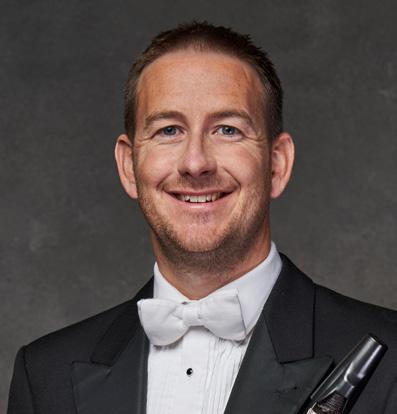
Prior to joining the RSNO, Timothy was the principal of the Orchestra of the Royal Opera House, Covent Garden. While there he performed many of the major solos of the operatic and ballet repertoire with some of the world’s finest conductors and singers.
Timothy has also appeared as guest principal with all of London’s major symphony orchestras. He has performed as a concerto soloist with the RSNO, Aurora Orchestra, Bournemouth Symphony Orchestra, Royal Northern Sinfonia and Royal Philharmonic Orchestra, at venues including the Royal Albert Hall. He has also been featured on many occasions as a soloist on BBC Radio 3 and Classic FM.
As a chamber musician, Timothy has performed worldwide alongside pianists including Pascal Rogé, Lars Vogt, Susan Tomes and Sir Antonio Pappano.
Timothy studied at the Royal Academy of Music in London and the Hochschule für Musik Karlsruhe, Germany. When not playing the clarinet, he enjoys the outdoors and has climbed 6,000-metre mountains in the Andes and Himalayas, as well as hills closer to home in Scotland.
John Wilson is in demand at the highest level across the globe, regularly guest conducting the world’s finest orchestras: in recent seasons these have included the London Symphony, London Philharmonic, Royal Concertgebouw, Budapest Festival, Oslo Philharmonic, Bavarian Radio Symphony, Royal Stockholm Philharmonic and Sydney Symphony orchestras, and productions at English National Opera and Glyndebourne Summer Festival. For many years Wilson appeared widely across the UK and abroad with the John Wilson Orchestra. In 2018 he relaunched the Sinfonia of London. Their much-anticipated BBC Proms debut in 2021 was described by The Guardian as ‘truly outstanding’ and they are now much in demand across the UK, returning to the BBC Proms, Birmingham Symphony Hall and London’s Barbican Centre, among other venues, this season.
Wilson has a large and varied discography and his recordings with the Sinfonia of London have received exceptional acclaim and several awards, including, for three successive years, the BBC Music Magazine Award in the Orchestral category for the Korngold Symphony in F sharp (2020), Respighi Roman Trilogy (2021) and Dutilleux Le Loup (2022) recordings. The Observer described the Respighi recording as ‘Massive, audacious and vividly played’ and The Times declared it one of the three ‘truly outstanding accounts of this trilogy’ of all time, after those by Toscanini (1949) and Muti (1984).
Born in Gateshead, John Wilson studied composition and conducting at the Royal College of Music where, in 2011, he was made a Fellow. In March 2019 he was awarded the prestigious ISM Distinguished Musician Award for his services to music and in 2021 was appointed Henry Wood Chair of Conducting at the Royal Academy of Music.
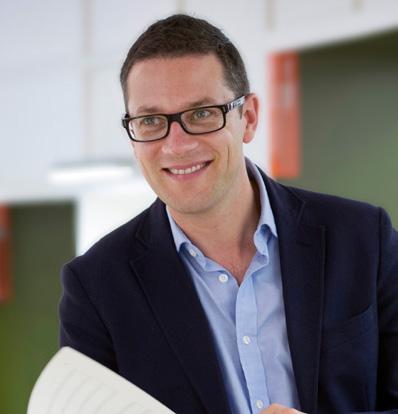
Formed in 1891 as the Scottish Orchestra, the company became the Scottish National Orchestra in 1950, and was awarded Royal Patronage in 1977. The Orchestra’s artistic team is led by Danish conductor Thomas Søndergård, who was appointed RSNO Music Director in October 2018, having previously held the position of Principal Guest Conductor. Hong Kong-born conductor Elim Chan succeeds Søndergård as Principal Guest Conductor.

The RSNO performs across Scotland, including concerts in Glasgow, Edinburgh, Dundee, Aberdeen, Perth and Inverness. The Orchestra appears regularly at the Edinburgh International Festival and the BBC Proms, and has made recent tours to the USA, China and Europe.
The Orchestra is joined for choral performances by the RSNO Chorus, directed by Stephen Doughty. The RSNO Chorus evolved from a choir formed in 1843 to sing the first full performance of Handel’s Messiah in Scotland. Today, the RSNO Chorus is one of the most distinguished large symphonic choruses in Britain. The Chorus has performed nearly every work in the standard choral repertoire, along with contemporary works by composers including John Adams, Howard Shore and Sir James MacMillan.
The RSNO has a worldwide reputation for the quality of its recordings, receiving a 2020 Gramophone Classical Music Award for Chopin’s Piano Concertos (soloist: Benjamin Grosvenor), conducted by Elim Chan; two Diapason d’Or awards for Symphonic Music (Denève/Roussel 2007; Denève/Debussy 2012) and eight GRAMMY Awards nominations. Over 200 releases are available, including Thomas Søndergård conducting Strauss (Ein Heldenleben, Der Rosenkavalier Suite) and Prokofiev (Symphonies Nos1 and 5), the complete symphonies of Sibelius (Gibson), Prokofiev (Järvi), Bruckner (Tintner) and Roussel (Denève), as well as further discs championing the music of William Grant Still (Eisenberg), Xiaogang Ye (Serebrier) and Thomas Wilson (Macdonald).
The RSNO’s pioneering learning and engagement programme, Music for Life, aims to engage the people of Scotland with music across key stages of life: Early Years, Nurseries and Schools, Teenagers and Students, Families, Accessing Lives, Working Lives and Retired and Later Life. The team is committed to placing the Orchestra at the centre of Scottish communities via workshops and annual residencies.
FIRST VIOLIN
Maya Iwabuchi
LEADER
Lena Zeliszewska
ASSOCIATE LEADER
Tamás Fejes
ASSISTANT LEADER
Patrick Curlett
Angus Bain
Caroline Parry
Ursula Heidecker Allen
Elizabeth Bamping
Lorna Rough
Susannah Lowdon
Alan Manson
Liam Lynch
Fiona Stephen
Kirstin Drew
SECOND VIOLIN
Marion Wilson
ASSOCIATE PRINCIPAL
Jacqueline Speirs
Nigel Mason
Paul Medd
Harriet Hunter
Anne Bünemann
Sophie Lang
Robin Wilson
Emily Nenniger
Colin McKee
Seona Glen
Kirsty Main
VIOLA
Tom Dunn
PRINCIPAL
Felix Tanner
Susan Buchan
Matt Johnstone
Lisa Rourke
Nicola McWhirter
Claire Dunn
Maria Trittinger
Francesca Hunt
Marsailidh Groat
CELLO
Betsy Taylor
ASSOCIATE PRINCIPAL
Kennedy Leitch
Rachael Lee
Sarah Digger
Robert Anderson
Gunda Baranuaskaitė
Sonia Cromarty
Miranda Phythian-Adams
DOUBLE BASS
Michael Rae
ASSISTANT PRINCIPAL
Moray Jones
Alexandre dos Santos
Chris Sergeant
Gabriel Rodrigues
Kirsty Matheson
FLUTE
Katherine Bryan
PRINCIPAL
June Scott
Oliver Roberts
OBOE
Adrian Wilson
PRINCIPAL
Peter Dykes
Henry Clay
PRINCIPAL COR ANGLAIS
CLARINET
Jean Johnson
GUEST PRINCIPAL
Rebecca Whitener
Duncan Swindells
PRINCIPAL BASS CLARINET
SAXOPHONE
Lewis Banks
BASSOON
David Hubbard
PRINCIPAL
Luis Eisen
Paolo Dutto
PRINCIPAL CONTRABASSOON
HORN
Benji Hartnell-Booth
GUEST PRINCIPAL
Alison Murray
Andrew McLean
David McClenaghan
Martin Murphy
TRUMPET
Christopher Hart
PRINCIPAL
Brian McGinley
Ben Jarvis
TROMBONE
Dávur Juul Magnussen
PRINCIPAL
Lance Green
Alastair Sinclair
PRINCIPAL BASS TROMBONE
TUBA
John Whitener
PRINCIPAL
TIMPANI
Marney O’Sullivan
GUEST PRINCIPAL
PERCUSSION
John Poulter
ASSOCIATE PRINCIPAL
Philip Hague
Jonathan Chapman
Colin Hyson
Peter Murch
Robbie Bremner
HARP
Pippa Tunnell
PIANO
Lynda Cochrane

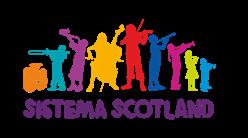
Sistema Scotland is the charity that delivers the Big Noise orchestra and social programmes, working with over 3,500 children and families to improve lives and strengthen communities across Scotland. Its immersive and long-term Big Noise programmes use music and nurturing relationships to help children and young people fulfil their potential. Independent evaluation shows that Big Noise supports children to improve their learning, wellbeing and confidence, bringing communities together and paving the way for positive futures. The programmes are delivered by inspirational staff musicians who act as role models and mentors, and foster supportive, long-term relationships.
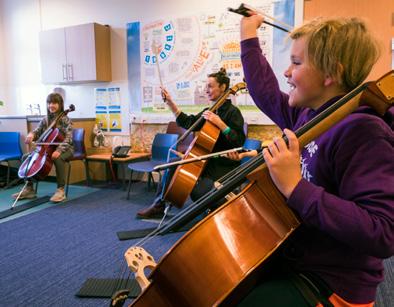
Big Noise Douglas in Dundee began in 2017 and works with over 500 participants, from babies to young people in their first year of secondary school. Working in partnership with the local Claypotts Castle and St Pius Primary Schools in Douglas, Big Noise Douglas delivers a seamless pathway of learning and targeted support for children from babies to secondary school age. The engaging and collaborative Big Noise sessions support participants to develop key life skills and academic skills.
Big Noise Douglas is delivered by Sistema Scotland in partnership with Dundee City Council and with support from a range of trusts, foundations and individuals. In addition to Big Noise Douglas, Sistema Scotland also runs programmes in Raploch & Fallin (Stirling), Govanhill (Glasgow), Torry (Aberdeen) and Wester Hailes (Edinburgh).
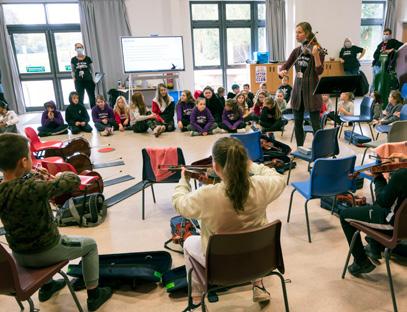
Relax and unwind with soup and a sandwich followed by a delightful hour of sparkling classical music from award-winning musicians.
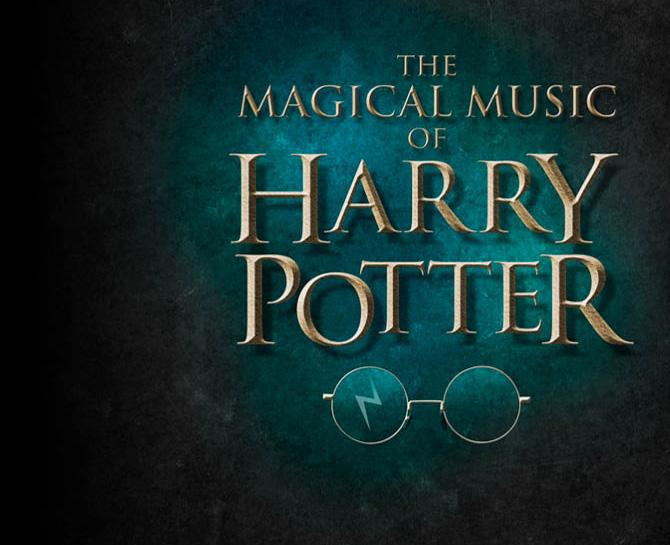
TUESDAY 28 MARCH
Dida Condria PIANO
Prize winner at BBC Young Musician of the Year 2022 with show pieces from Rachmaninov, Ravel and Liszt.
TUESDAY 18 APRIL
Ethan Loch PIANO
A finalist at BBC Young Musician of the Year 2022, Ethan’s programme includes Chopin’s brilliant third sonata and more!
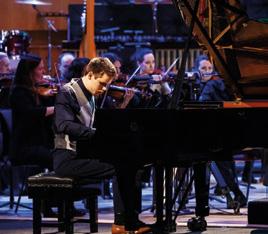
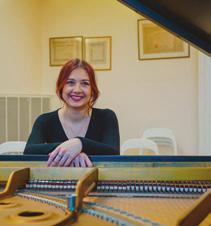
CAIRD HALL, DUNDEE
Thu 15 Jun 2023
RSNO Youth Chorus
Patrick Barrett Director, RSNO Youth Chorus

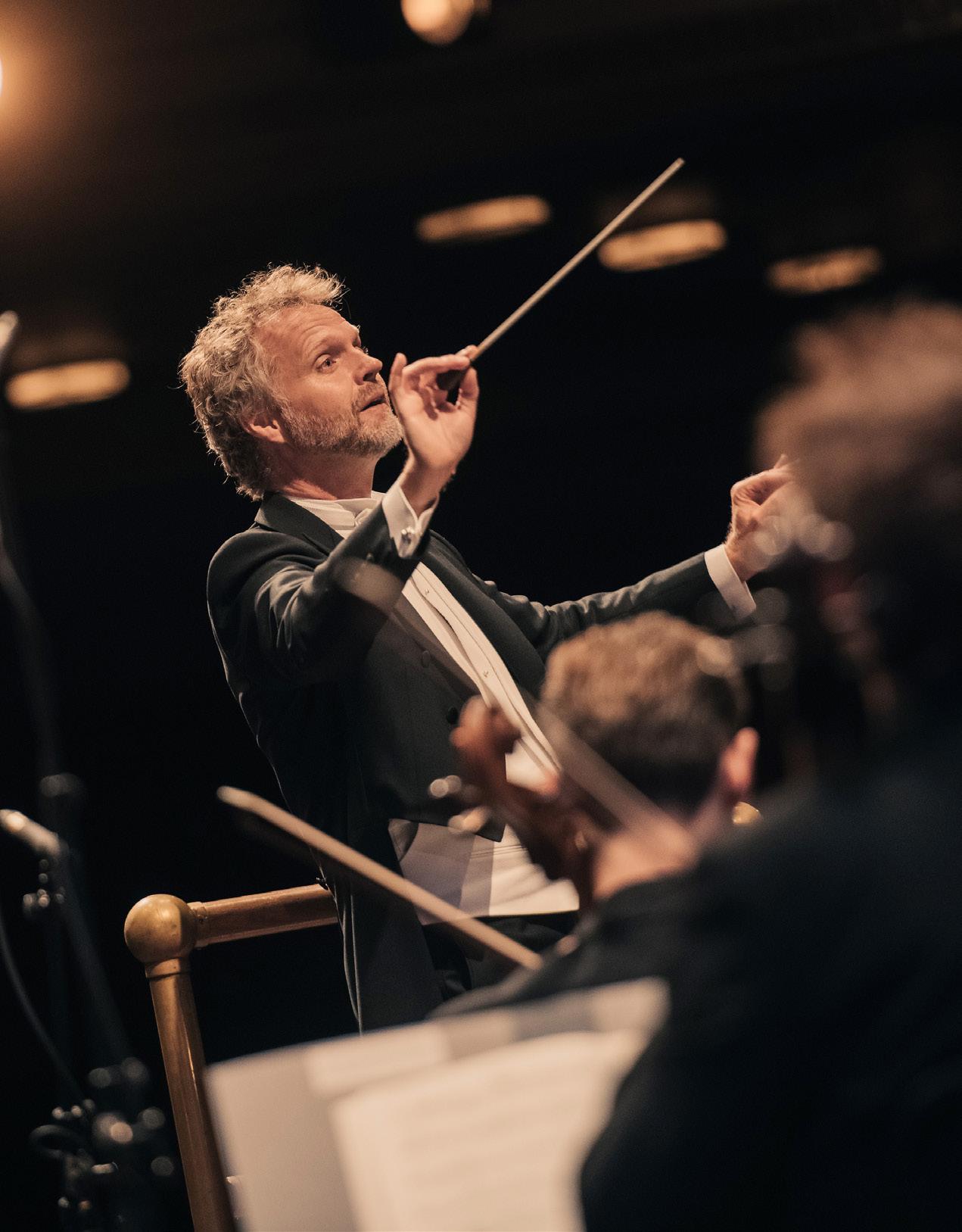
I am honoured and extremely proud to be Music Director of the RSNO. It is through the continued generosity of you, our friends, donors and supporters, that we can continue to achieve and realise the most ambitious goals of the Orchestra.
One of the wonders of the RSNO is how it brings high-quality music not only to concert halls, but to the wider community. From hospital settings to care homes, from our Astar app for families with newborns to our National Schools Concert Programme, our music touches so many lives in Scotland and beyond.
RSNO Benefactors are beacons of philanthropic inspiration, providing truly transformative financial support to the Orchestra that enables us to build and deliver long-term strategic plans. Benefactors share the RSNO’s vision
Your support is the cornerstone of all that we do, as it allows us to continually build and develop.
Thank you for being part of this wonderful Orchestra’s journey, as we adapt and grow towards a bright future.
Thomasfor orchestral music and work with us to drive the organisation forward, helping us to realise our future plans and ambitions.
Sir Ewan and Lady Brown
Gavin & Kate Gemmell
The RSNO Conductors’ Circle is an inspirational group of individual supporters at the heart of the RSNO’s Individual Giving programme. Our members’ annual philanthropic gifts enable us to realise the Orchestra’s most ambitious goals. Conductors’ Circle members support inspirational concert performances for our audiences alongside transformational education programmes in communities across Scotland, via our ground-breaking initiative Music for Life.
The RSNO is very grateful for the continued support of its Conductors’ Circle:
Ardgowan Charitable Trust
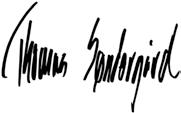
Geoff and Mary Ball
Stina Bruce Jones
Ian and Evelyn Crombie
Carol Grigor and the Trustees of Dunard Fund
Kenneth and Julia Greig
Ms Chris Grace Hartness
Kat Heathcote and Iain Macneil
Bruce and Caroline Minto
David and Alix Stevenson
Eric and Karen Young
We would also like to thank those generous donors who wish to remain anonymous.
For more information on becoming a Benefactor or part of the Conductors’ Circle, please contact Jenny McNeely at jenny.mcneely@rsno.org.uk
Rachmaninov’s Symphonic Dances
CHAIR PATRON
From musical activities in schools with the musicians of the future to working in community venues across Scotland, as a Chair Patron you are enabling RSNO musicians to explore the many facets of their art and the positive impact it has on people’s lives. Supporting an individual musician puts you at the heart of the RSNO family. You’re connected directly to the musicians on stage and get to enjoy privileged behind-the-scenes access. RSNO musicians truly appreciate our Chair Patrons and enjoy developing personal relationships with our supporters.
Assistant Conductor
Kellen Gray
The Solti Foundation Chair
First Violin
Maya Iwabuchi LEADER
Sharon Roffman LEADER
Dunard Fund Chair
Tamás Fejes ASSISTANT LEADER
The Bill and Rosalind Gregson Chair
Patrick Curlett
ASSISTANT PRINCIPAL
The RSNO Circle Chair
Alan Manson
The Hugh and Linda Bruce-Watt Chair
Elizabeth Bamping
The WL and Vera Heywood Chair
Ursula Heidecker Allen
The James and Iris Miller Chair
Lorna Rough
The Hilda Munro Chair
Second Violin
Marion Wilson
ASSOCIATE PRINCIPAL
The Nigel and Margot Russell Chair
Sophie Lang
The Ian and Evelyn Crombie Chair
Viola
Tom Dunn PRINCIPAL
The Cathy & Keith MacGillivray Chair
Lisa Rourke SUB PRINCIPAL
The Meta Ramsay Chair
Francesca Hunt
The Rolf and Celia Thornqvist Chair
Cello
Betsy Taylor
ASSOCIATE PRINCIPAL
The Maxwell Armstrong Chair
Kennedy Leitch
ASSISTANT PRINCIPAL
The David and Anne Smith Chair
Rachael Lee
The Christine and Arthur Hamilton Chair
Double Bass
Michael Rae James Wood Bequest Fund Chair
With thanks to the Gregor Forbes John Clark Chair for its support of the RSNO Double Bass section
Flute
Katherine Bryan PRINCIPAL
The David and Anne Smith Chair
Helen Brew ASSISTANT PRINCIPAL
The Gordon Fraser Charitable Trust Chair
Oboe
Adrian Wilson PRINCIPAL
The Hedley Wright Chair
Peter Dykes
ASSOCIATE PRINCIPAL Witherby Publishing Group
Charitable Trust Chair
Cor Anglais
Henry Clay PRINCIPAL
In memory of a dear friend, Fiona H Bassoon
David Hubbard PRINCIPAL
The James and Morag Anderson Chair
Horn Christopher Gough PRINCIPAL
The Springbank Distillers Chair
Martin Murphy
ASSISTANT PRINCIPAL
The John Mather Trust’s Rising Star Chair
Alison Murray
ASSISTANT PRINCIPAL
Mr & Mrs Pierre and Alison Girard
David McClenaghan
The J & A Mitchell Chair
Trumpet
Christopher Hart PRINCIPAL
Ms Chris Grace Hartness
Trombone
Dávur Juul Magnussen
PRINCIPAL
The Mitchell’s Glengyle Chair
Lance Green
ASSOCIATE PRINCIPAL
The William Cadenhead Chair
Timpani
Paul Philbert
Ms Chris Grace Hartness
Percussion
John Poulter
ASSOCIATE PRINCIPAL
The Dot and Syd Taft Chair
Library and Orchestra
Assistant
Xander van Vliet
The Hilda Munro Chair
We would like to acknowledge the generous contribution of Mr Hedley Wright in supporting the RSNO Chair Patron Programme.
Our Learning and Engagement activity is structured around our Music for Life programme. From apps for babies to concerts and workshops for school children, and lunchtime concerts for older adults, the range of projects is vast. As a Patron, you will have access to our projects to bring you closer to the communities we serve across Scotland.
Learning and Engagement Patrons
William Brown, W.S.
Neil and Nicola Gordon
Professor Gillian Mead, FRSE
Mr Maurice Taylor CBE
RSNO Principal Oboe, Adrian Wilson
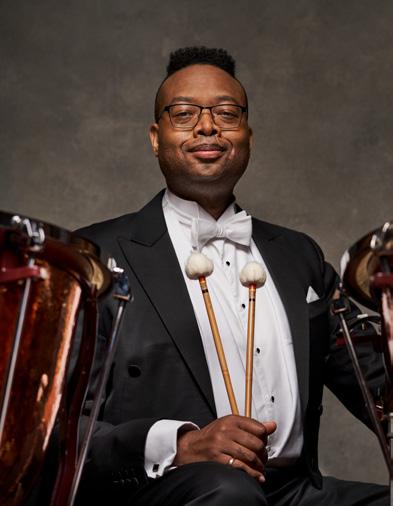
The RSNO Dundee Circle Committee
Witherby Publishing Group Charitable Trust
The RSNO is dedicated to bringing new works and outstanding new talent to audiences across Scotland. Our New Works Patrons contribute a significant legacy to orchestral music that extends beyond the RSNO, providing new music for orchestras and audiences around the world – for generations to come.
New Works Patron Susie ThomsonWe are also grateful to those who give but wish to remain anonymous.
If you would like more information or would like to discuss how you can become part of the RSNO Family of Supporters, please contact Jenny McNeely, Head of Individual Giving and Partnerships, at jenny.mcneely@rsno.org.uk
We would like to thank all those who have donated to our new Play Your Part Appeal. The generosity of our supporters at this time is deeply appreciated.
Leave
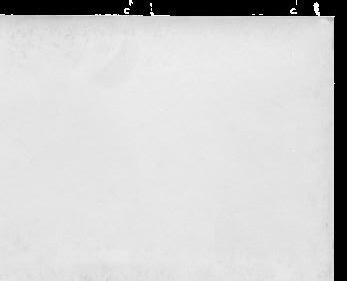
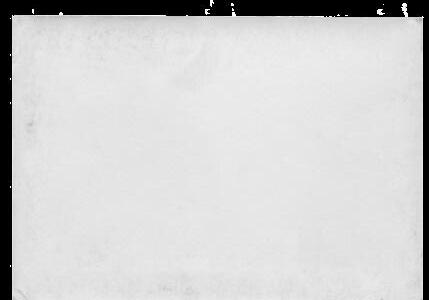
We all have special Musical Memories. It could be learning to play an instrument when you were a child, or a special piece of music that just left you breathless the first time you heard the Orchestra play it. Maybe it was seeing a soloist you had always wanted to hear, or just a great concert shared with friends. Memories such as these make music such an important part of our lives.
Leaving a gift to the RSNO in your will is the single most important way you can help us to make music and to create memories. Your legacy will support the work of the Orchestra for years to come, ensuring that we can continue to bring great music to a new generation of children, young people and adults right across Scotland. It is easy to leave a gift. After you have made provisions for family and friends, please think of the Orchestra.
Your gift is important to us and to everyone in Scotland who enjoys music. Contact your solicitor to draft a will or add a codicil to your current will.
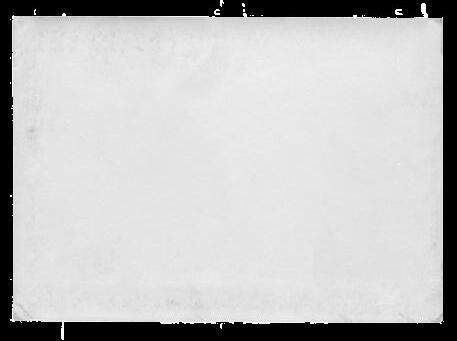
If your estate is subject to inheritance tax, a gift to a charity, such as the RSNO, is tax-free and will reduce the amount of tax payable to the Government. Please ask your solicitor for details.
For more information please visit rsno.org.uk/memories
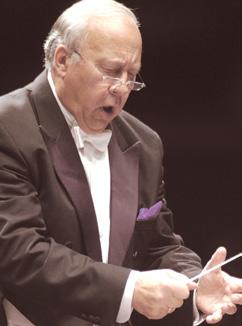
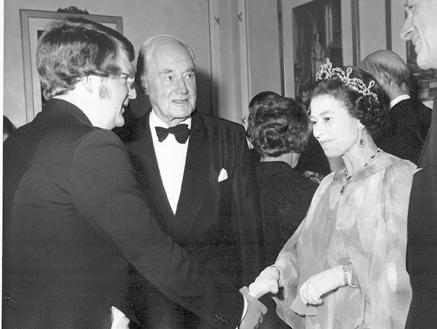
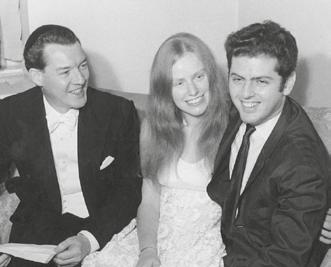
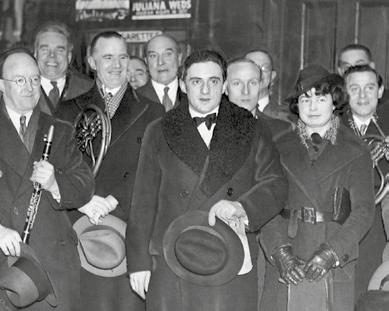
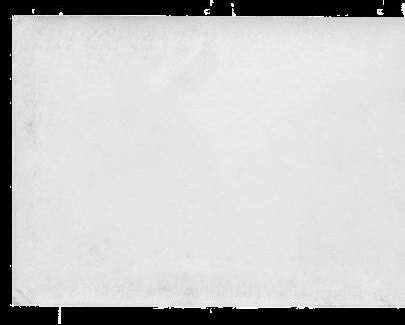
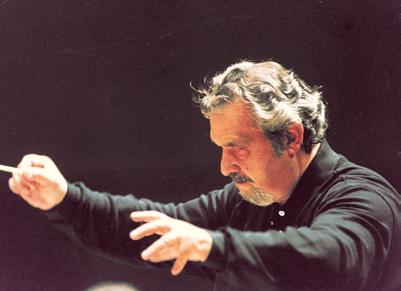
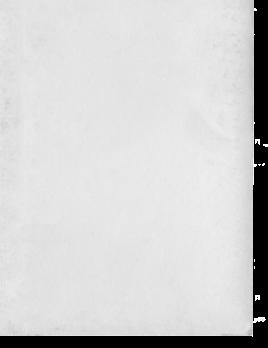
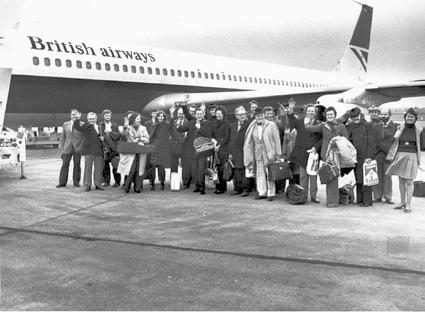
If you would like to discuss this further, please contact Torran McEwan, Individual Giving and Partnerships Officer, in the strictest confidence, at torran.mcewan@rsno.org.uk
To the many among you who have pledged to leave a gift already – thank you.
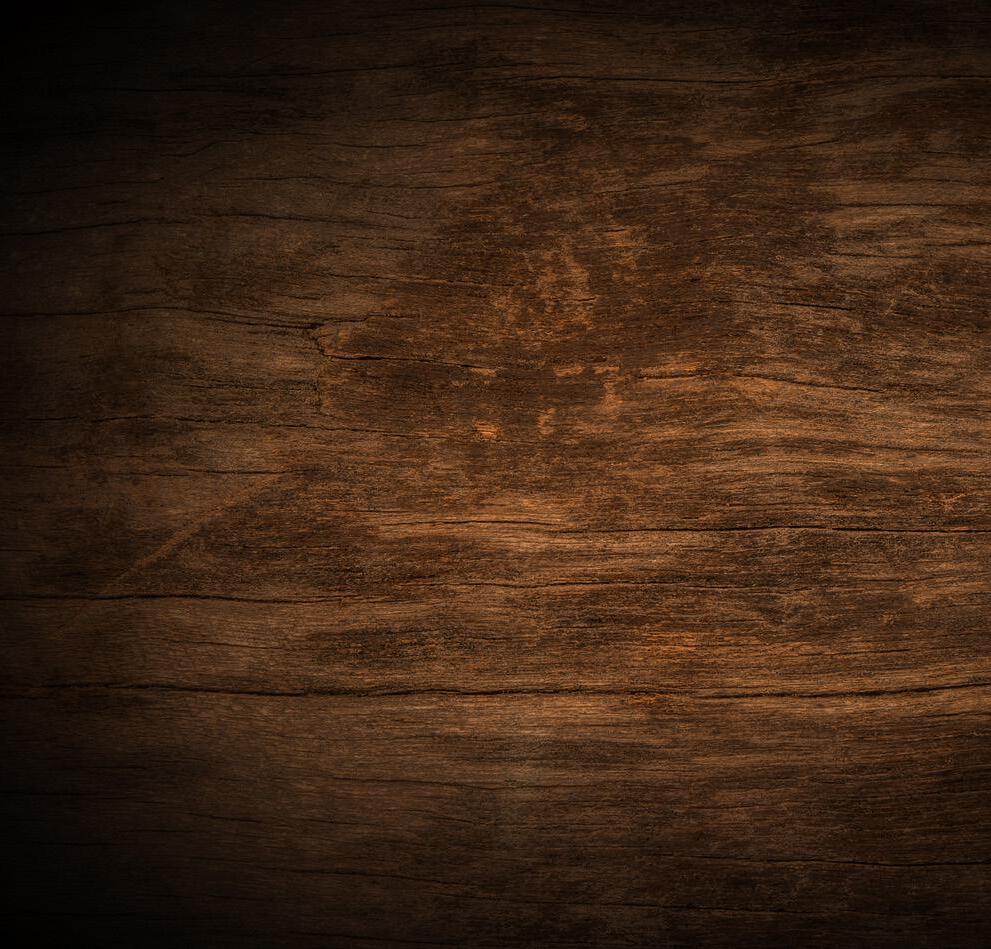
 Rachmaninov’s Symphonic Dances
Rachmaninov’s Symphonic Dances
a gift to the RSNO and ensure future generations can create their own Musical Memories of the Royal Scottish National Orchestra.
Charitable trusts and foundations have a distinguished history of supporting the RSNO, both on and off stage. From one-off donations for specific projects to multi-year funding for our flagship outreach initiatives, including the National Schools Concert Programme and Young Creatives, every grant in support of our work is truly appreciated. We are grateful to the following trusts and foundations for their generosity:
Aberdeen Endowments Trust
Alexander Moncur Trust
Alma & Leslie Wolfson Charitable Trust
Balgay Children’s Society
Boris Karloff Charitable Foundation
Castansa Trust
CMS Charitable Trust
Cookie Matheson Charitable Trust
Cruach Trust
Cruden Foundation
David and June Gordon Memorial Trust
D’Oyly Carte Charitable Trust

Dunclay Charitable Trust
Educational Institute of Scotland
Edgar E Lawley Foundation
Ettrick Charitable Trust
Fenton Arts Trust
Forteviot Charitable Trust
Gaelic Language Promotion Trust
Gannochy Trust
Gordon Fraser Charitable Trust
Harbinson Charitable Trust
Hugh Fraser Foundation
Idlewild Trust
James Wood Bequest Fund
Jean & Roger Miller’s Charitable Trust
Jennie S Gordon Memorial Foundation
Jimmie Cairncross Charitable Trust
John Mather Charitable Trust
John Scott Trust Fund
Jones Family Charitable Trust
JTH Charitable Trust
Leach Family Charitable Trust
Leng Charitable Trust
Mary Janet King Fund
McGlashan Charitable Trust
McLay Dementia Trust
MEB Charitable Trust
Meikle Foundation
Mickel Fund
Murdoch Forrest Charitable Trust
Nancie Massey Charitable Trust
Noël Coward Foundation
Northwood Charitable Trust
P F Charitable Trust
Pump House Trust
Q Charitable Trust
Ronald Miller Foundation
R J Larg Family Trust
Russell Trust
Scops Arts Trust
Scott Davidson Charitable Trust
Solti Foundation
Souter Charitable Trust
Stevenston Charitable Trust
Sylvia Aitken Charitable Trust
Tay Charitable Trust
Thomson Charitable Trust
Thriplow Charitable Trust
Tillyloss Trust
Vaughan Williams Foundation
WA Cargill Fund

Walter Craig Charitable Trust
Walter Scott Giving Group
Walton Foundation
Wavendon Foundation
William Syson Foundation
William S Phillips Fund
Zich Trust
We are also grateful to a number of trusts that wish to stay anonymous.
If you would like more information about our work and how you can make a difference, please contact Naomi Stewart, Head of Trusts and Projects, at naomi.stewart@rsno.org.uk
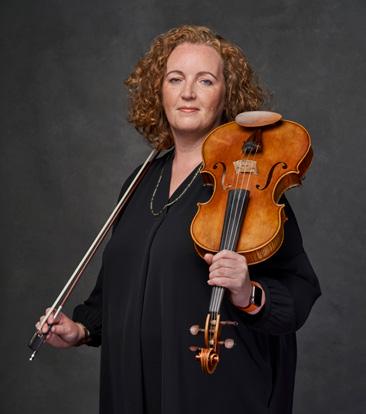

The Circle is a vital part of the RSNO family. Our community of music-lovers inspire and support us. Supporting us by joining the Circle will help us to bring music to so many people, from our Learning and Engagement programmes to our brand-new digital performances. As part of our community and family, we will keep in touch with our exclusive magazine Inner Circle, our Circle member webpage and invitations to special events throughout the year.
To find out more about joining the Circle please visit rsno.org.uk/circle or get in touch with Torran McEwan, Individual Giving and Partnerships Officer, at torran.mcewan@rsno.org.uk
To all our existing Circle members, thank you. Thank you for your unwavering support that allows us to continue sharing the joy of music.
Virtuoso
Ms Catherine Y Alexander
Mrs A M Bennett
Mr Alan and Mrs Carolyn Bonnyman
Dame Susan and Mr John Bruce
Mrs Stina Bruce-Jones
Stephen and Morny Carter
Francesca and Eoghan Contini Mackie
Sir Sandy and Lady Crombie
Gavin and Kate Gemmell
Dr M I and Mrs C R Gordon
Scott and Frieda Grier
Judith and David Halkerston
Iain MacNeil and Kat Heathcote
Miss A McGrory
Miss M Michie
Mr James Miller CBE
Nicholas and Alison Muntz
Meta Ramsay
Mr George Ritchie
Mr P Rollinson
Mr and Mrs W Semple
Mr Ian Taft
Claire and Mark Urquhart
Raymond and Brenda Williamson
Mr Hedley G Wright
Symphony
Mr Anderson
Mr W Berry
Mr John Brownlie
Miss L Buist
Mr and Mrs J K Burleigh
Mrs E Gibb
Mr I Gow
Mr J D Home
Mrs J Kennedy
Mrs A Lamont
Mr I C MacNicol
Professor J and Mrs S Mavor
Mrs McQueen
Mrs A McQueen
Morag Millar
Mr Miller
Mrs A Morrison
Graham and Elizabeth Morton
Mr and Mrs David Robinson
Mr D Rogerson
Mrs Ann M Stephen
Mr Alistair M and Mrs Mandy Struthers
Mr and Mrs M Whelan
Concerto
Dr K Chapman and Ms S Adam
Mr A Alstead
Mr N Barton
Miss D Blackie
Mr L Borwick
Neil and Karin Bowman
Dr C M Bronte-Stewart
Dr F L Brown
Mr and Mrs Burnside
Ms H Calvert
Mr A Campbell
Sir Graeme and Lady Catto
Mr R Cavanagh
Myk Cichla
Dr J Coleiro
Ms R Cormack
Mr and Mrs B H Cross
Christine and Jo Danbolt
Mr P Davidson
Mr J Diamond
Mr S Dunn
Mr C Ffoulkes
Mr and Mrs M Gilbert
Professor J R and Mrs C M Gray
Mrs S Hawthorn
Richard and Linda Holden
Mr N Jack
Ms H Kay
Mr and Mrs W Kean
Mrs M King
Norman and Christine Lessels
Mr R M Love
Mr D MacPherson
Mr R G Madden
Mrs K Mair
Mr and Mrs Marwick
Mr S Marwick
Mr and Mrs G McAllister
Ms M McDougall
Mr Rod McLoughlin
Mrs B Morinaud
Mr A Morrison
Dr and Mrs D Mowle
Dr C C and Mr K R Parish
Mr I Percival
Mr and Mrs D Pirie
Ms A and Miss I Reeve
Mrs E Robertson
Miss L E Robertson
Mr D Rogerson
Ross family
Dr and Mrs G K Simpson
Mr and Mrs A Stewart
Mrs M Stirling
Mr G Stronach
Dr G R Sutherland
Mr I Szymanski
Mr and Dr Tom Thomson
Mr J B and Mrs M B Watson
Mr and Mrs D Weetman
Mrs Wigglesworth
Mr and Mrs Zuckert
Sonata
Ms S Ace
Mr K Allen
Mrs P Anderson
Ms D Baines
Mr O Balfour
Mr N Barton
Dr A D Beattie
Mrs H Benzie
Mr R Billingham
Dr and Mrs Blake
Lord and Lady Borthwick
Rev P Boylan
John Bradshaw and Shiona Mackie
Mr and Mrs Bryan
Lady J Bute
Mrs C Campbell
Miss S M Carlyon
Mr J Claxon
Lady Coulsfield
Adam and Lesley Cumming
Ms K Cunningham
Mr F Dalziel and Mrs S Walsh
Dr J K and Mrs E E Davidson
Mr and Mrs K B Dietz
Mrs C Donald
J Donald and L Knifton
Ms P Dow
Mrs P du Feu
Mr John Duffy
Mr and Mrs M Dunbar
Mr R M Duncan
Brigadier and Mrs C C Dunphie
Mrs E Egan
Mr R Ellis
Miss L Emslie
Mr R B Erskine
Dr E Evans
Mr D Fraser
Mr D and Mrs A Fraser
Mr D Frew
Ms J Gardner
Dr P and Dr K Gaskell
Mr W G Geddes
Mrs M Gibson
Mr D Gibson
Mr and Mrs A Gilchrist
Mrs M Gillan
Mr R M Godfrey
Mrs J K Gowans
Dr J and Mrs H Graham
Professor and Mrs A R Grieve
Mr and Mrs G Y Haig
Lord and Lady Hamilton
Dr P J Harper
Mrs I Harris
Dr N Harrison
Mr and Mrs R J Hart
Mr D Hartman
Ms V Harvey
P Hayes
Dr and Mrs P Heywood
Bobby and Rhona Hogg
Ms J Hope
Mr R Horne
Mr and Mrs F Howell
Mr A Hunter
Mrs A S Hunter
Professor R N Ibbett
Ms J Incecik
Mr A Kilpatrick
Professor and Mrs E W Laing
Ms K Lang
Mr J P Lawson
Mr and Mrs J Lawson
G E Lewis
Dr D A Lunt
Mrs Lesley P Lyon
Mr and Mrs R MacCormick
Mr D MacDonald
Mr and Mrs MacGillivray
Lady Lucinda L Mackay
Dr A K and Mrs J C Martin
Mr and Mrs J Martin
Mr and Mrs D H Marwick
Ms S McArthur
Mr G McCormack
Mrs L McCormick
Mrs M McDonald
Mr M McGarvie
Dr Colin McHardy
Dr A H McKee
Mr Patrick McKeever
Mr G McKeown
Ms H L McLaren
Mrs E McLean
Mr D McNaughton
Professor Mead
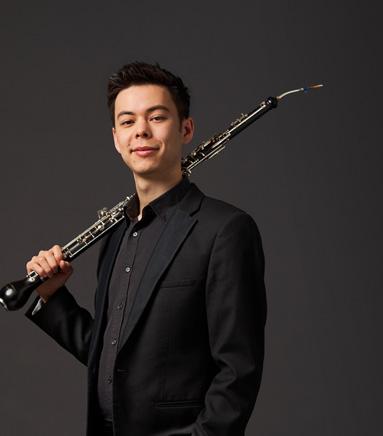
Mr and Mrs B Mellon
Mr G Millar
Mr I Mills
Mrs P Molyneaux
Mr B Moon
Mr R Morley
Mr B and Mrs C Nelson
Mr and Mrs K O’Hare
Professor Stephen Osborne and Frank Osborne
Mr and Mrs K Osborne
Dr G Osbourne
Ms S Park
Mr R Parry
Misses J and M Penman
Dr M Porteous
Mr J W Pottinger
Miss J A Raiker
Mr W Ramage
Mr M Rattray
Ms F Reith
Mrs D A Riley
Dr and Mrs D Robb
Mrs A Robertson
Mr I Robertson
Mr H and Mrs J Robson
Ms A Robson
Mrs E K Ross
F Scott
Mrs S Scott
Mrs J Shanks
Mr J A Shipley
Dr M J and Mrs J A Shirreffs
Mr E Simmons
Dr Colin and Mrs Kathleen Sinclair
Mr M Smith
Mr M J Smith
Mrs E Smith
Mr M A Snider
Dr and Mrs B Stack
Mrs Lorna Statham
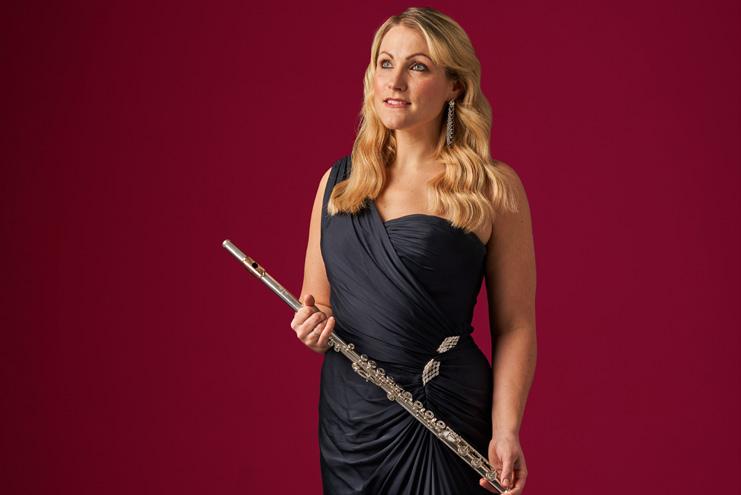
Mrs T Stevenson
Rev N and Mr R Stewart
Mrs R F Stewart
Mr and Mrs Struthers
Mr and Mrs B Tait
Dr and Mrs T Thomson
Mr C Turnbull
Dr S Tweedie
Dr Morag Ward
Mr Nelson and Mrs Barbara Waters
Mr W Watters
Dr and Mrs T Weakley
Mrs V Wells
Mr G West
Miss M Whitelaw
Dr and Mrs D T Williams
Mr D Woolgar
Mr R Young
Mr C and Mrs L Yule
Thank you to all our members of the Circle, including those who wish to remain anonymous. Every one of you makes a real difference.



PRINCIPAL
PRINCIPAL

BROADCAST
If you would like more information about sponsorships, corporate partnerships or fundraising events with the RSNO, please contact Jenny McNeely, Head of Individual Giving and Partnerships, at jenny.mcneely@rsno.org.uk
PATRON
Her Late Majesty The Queen
RSNO BOARD OF DIRECTORS
Elected Directors
Dame Susan Bruce DBE
CHAIR
John Heasley
HONORARY TREASURER
Kat Heathcote
Linda Holden
Neil McLennan
Costa Pilavachi
CHIEF EXECUTIVE
Alistair Mackie
Phoebe Connolly
EXECUTIVE ASSISTANT
Nicola Shephard
EXECUTIVE ASSISTANT (MATERNITY LEAVE)
CONCERTS
Dr Ingrid Bols
PLANNING OFFICER
Michael Cameron
DRIVER AND DEPUTY STAGE MANAGER
Emma Hunter
DEPUTY ORCHESTRA MANAGER
Ewen McKay
HEAD OF ORCHESTRA MANAGEMENT
Jim O’Brien
DRIVER AND ORCHESTRA TECHNICIAN
Richard Payne
LIBRARIAN
Tammo Schuelke
HEAD OF PLANNING
Craig Swindells
HEAD OF PRODUCTIONS
Matthias Van Der Swaagh
CONCERTS ADMINISTRATOR
Xander van Vliet
LIBRARY ASSISTANT
Christine Walker
CHORUS MANAGER
LEARNING AND ENGAGEMENT
Andy Stevenson
DIRECTOR OF ENGAGEMENT
Samantha Campbell
HEAD OF ENGAGEMENT (MATERNITY LEAVE)
David Robinson
Gurjit Singh Lalli
Jane Wood
Player Directors
Helen Brew
David Hubbard
Dávur Juul Magnussen
Sophie Lang
Paul Philbert
Lorna Rough
Nominated Director
Cllr Edward Thornley
THE CITY OF EDINBURGH COUNCIL
Chrissie Johnson
PROJECT MANAGER
Rosie Kenneally
LEAD PROJECT MANAGER
Rachel O’Connor
CREATIVE ASSISTANT
Rachel Pyke
PROJECT MANAGER
EXTERNAL RELATIONS
Dr Jane Donald
DIRECTOR OF EXTERNAL RELATIONS
Lisa Ballantyne
PARTNERSHIPS OFFICER
Ian Brooke
PROGRAMMES EDITOR
Rosie Clark
EXTERNAL RELATIONS ADMINISTRATOR
Jessica Cowley
MARKETING MANAGER
Carol Fleming
HEAD OF MARKETING
Constance Fraser
COMMUNICATIONS AND MARKETING OFFICER
Torran McEwan
INDIVIDUAL GIVING AND PARTNERSHIPS
OFFICER
Jenny McNeely
HEAD OF INDIVIDUAL GIVING AND PARTNERSHIPS
Mirienne McMillan
SALES OFFICER
Graham Ramage
GRAPHICS AND NEW MEDIA DESIGNER
Kirsten Reid
TRUSTS AND PROJECTS COORDINATOR
Dr Naomi Stewart
HEAD OF TRUSTS AND PROJECTS
Sam Stone
INFORMATION SERVICES MANAGER
Youth Advisory Board
Nina Doig
Erin Findlay
Beth Peat
Annie Unieng
Company Secretary
Gordon Murray
RSNO COUNCIL
Baroness Ramsay of Cartvale
CHAIR
Ms Ruth Wishart
FINANCE AND CORPORATE SERVICES
Angela Moreland
CHIEF OPERATING OFFICER
Abby Dennison
FINANCE ADMINISTRATOR
Alice Gibson
FINANCE ADMINISTRATOR
Ted Howie
FACILITIES COORDINATOR
Lorimer Macandrew
VIDEO PRODUCER
Sam McErlean
SOUND ENGINEERING INTERN
Irene McPhail
ACCOUNTS AND PAYROLL ASSISTANT
Calum Mitchell
VIDEO PRODUCTION INTERN
Hedd Morfett-Jones
DIGITAL MANAGER
Susan Rennie
FINANCE MANAGER
Jade Wilson
FINANCE ASSISTANT
Royal Scottish National Orchestra 19 Killermont Street
Glasgow G2 3NX
T: +44 (0)141 226 3868
W: rsno.org.uk
Scottish Company No. 27809
Scottish Charity No. SC010702
@rsnoofficial Youtube.com/thersno

